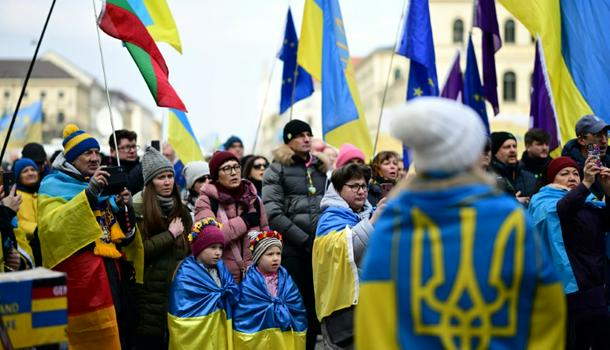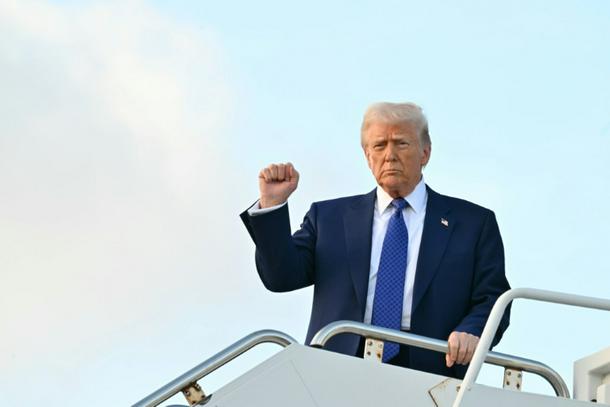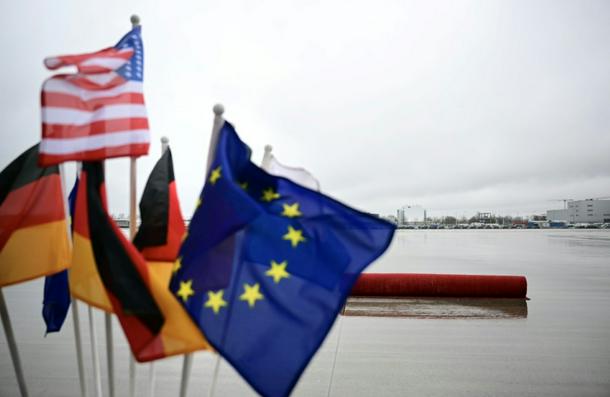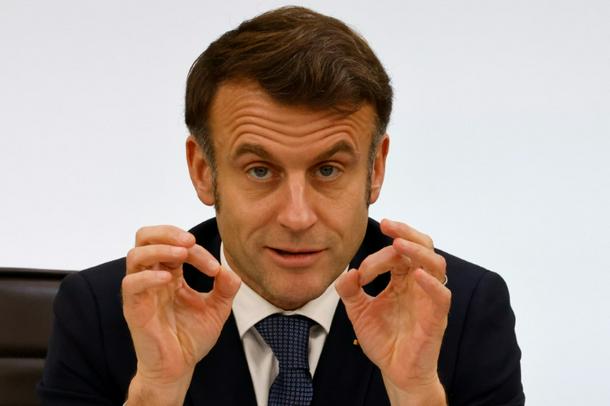
The war in Ukraine will enter its fourth year on February 24
Paris (AFP) - European leaders were due to meet in Paris on Monday to address Washington’s shock policy shift on the war in Ukraine, as top US and Russian diplomats geared up for their first talks aimed at ending the three-year conflict.
US President Donald Trump sidelined Kyiv and its European backers last week when he called his Russian counterpart Vladimir Putin to talk about starting negotiations to end the conflict.
The hastily convened Paris informal summit of European leaders set to start at 4:00 pm (1500 GMT) comes after Trump said he could meet Putin “very soon”.
The Paris talks come as Washington said Secretary of State Marco Rubio, National Security Advisor Mike Waltz and Special Envoy Steve Witkoff would on Tuesday meet with a Russian delegation including Foreign Minister Sergei Lavrov in Riyadh ahead of a future meeting between Trump and Putin in the Saudi capital.
Rubio had earlier sought to play down expectations of any breakthrough at upcoming talks with Russian officials.
“A process towards peace is not a one-meeting thing,” he told the CBS network.
Hosted by President Emmanuel Macron at the Elysee palace, the European meeting will gather the leaders of France, Germany, Britain, Italy, Poland, Spain, the Netherlands and Denmark, as well as the heads of the European Council, the European Commission and NATO.

Trump said he could meet Putin 'very soon'
The war in Ukraine is days short of its third anniversary on February 24.
British Prime Minister Keir Starmer said Sunday that he was willing to put “our own troops on the ground if necessary” in response to what he called “a once-in-a-generation moment for the collective security of our continent”.
Starmer also said he would meet with Trump in the coming days.
Ukrainian President Volodymyr Zelensky was to visit Saudi Arabia on Wednesday, one day after the meeting between top US and Russian officials.
Zelensky had announced the trip along with stops the United Arab Emirates and Turkey last week without giving dates, adding he had no plans to meet Russian or US officials.
- ‘Take a leap forward’ -
The Paris meeting will address “the situation in Ukraine” and “security in Europe”, the French presidency said.

The new US administration has also warned its NATO allies that Europe will no longer be its top security priority
“Because of the acceleration of the Ukrainian issue, and as a result of what US leaders are saying, there is a need for Europeans to do more, better and in a coherent way, for our collective security,” an adviser in Macron’s office said.
Trump’s special envoy to Ukraine, Keith Kellogg, has said Europe would not be directly involved in talks on Ukraine, though it would still have “input”.

President Emmanuel Macron is hosting Monday's informal summit on Ukraine
French Foreign Minister Jean-Noel Barrot said Sunday it would fall to Europe to guarantee any peace deal in Ukraine, adding he expected the United States to “revise their level of commitment to NATO, including in terms of geography”.
The American policy shift “requires that we truly wake up, and even take a leap forward, to take our place for the security of the European continent”, Barrot said.
He told the LCI news channel that talks were already underway, involving notably France, Britain and Poland, to guarantee a future ceasefire and “lasting peace” in Ukraine.
- ‘Peace is still far off’ -
Spain’s foreign minister, Jose Manuel Albares, however said that, while it was necessary for Europeans to meet and prepare decisions, “nobody is currently planning to send troops to Ukraine, especially because peace is still far off”.
Germany on Monday agreed, with deputy government spokeswoman Christiane Hoffmann telling reporters it was “premature” to talk about sending troops to Ukraine.
Chancellor Olaf Scholz had said late Sunday that negotiations on Ukraine’s future could not be successful without European guarantees “that we will have created and accepted”.
Meanwhile Hungary, whose Prime Minister Viktor Orban is close to both Trump and Putin, said that Monday’s conference was an effort to “prevent” peace.
“Today, in Paris, pro-war, anti-Trump, frustrated European leaders are gathering to prevent a peace agreement in Ukraine,” said Foreign Minister Peter Szijjarto.
Lavrov said Europeans want to “continue war in Ukraine”.
burs-jh/ah/jm